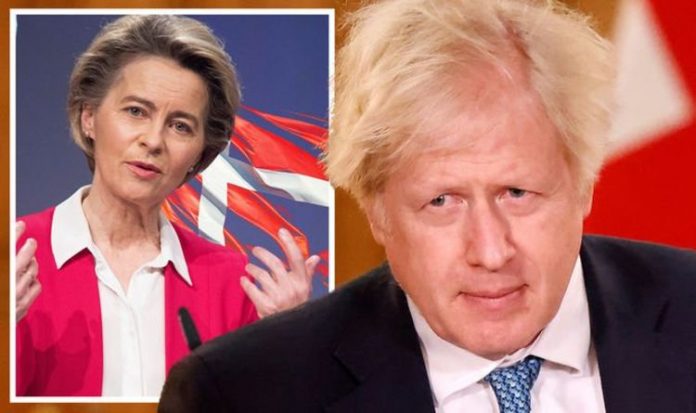Denmark frequently aligned itself with the UK on a number of policies during debates in Brussels, and even joined the European bloc on the same day, January 1st 1973. But with Brexit, the country loses a crucial ally within the EU. This has led to political figures in Denmark and analysts highlighting the potential challenges that could face Copenhagen. Social Democratic MEP Christel Schaldemose told DR in January last year, as the UK officially left the EU, that Brexit is “sad” for the country.
She said: “It will be sad. We are losing a very, very central ally in a large number of areas, whom we have been able to shelter behind a little.
“For example, with regard to making the EU more efficient and a little less federal than some of the other countries would like. That is something we’ll really notice.”
Another MEP, Morten Lokkegaard of the centre-right Liberals, said the UK had been a “political big brother” to Denmark in the EU.
He said: “We are losing a political big brother in the European cooperation. Throughout the years, we’ve been able to place ourselves in the Brits’ slipstream and let them do the hard work in key areas like free trade and the Single Market.
“We’re losing that bulldozer now, and politically, that will be a big problem for us.”
Meanwhile, Josef Janning, a senior researcher at the European Council of Foreign Relations, said that Denmark and the UK for years had a shared scepticism of Europe.
He said: “Both countries have been sceptical for years about a centralized and federal Europe. Both believe that the EU should be a trade market first and foremost.”
He also told DR that Copenhagen may feel “betrayed” by Britain’s departure.
Thomas Aeschi, a right-wing politician in Switzerland from the Swiss People’s Party, predicted in 2015 that Brexit could spark a chain reaction where Sweden and the Danes “would at least start reconsidering their relationship with the EU”.
READ MORE: Brexit: Europe says UK failed to ‘stop dominant European power’
Officials in Copenhagen have mined the archives to build a case that could potentially be fought in the international court of justice in The Hague.
Denmark’s foreign affairs minister, Anders Samuelsen said at the time: “Danish fishermen have historically been fishing across the North Sea. The Common Fisheries Policy in the EU has regulated this, based on historical rights and preserving our common stocks that don’t follow economic zones.
“Clearly, this is very important for many fishing communities especially along the Jutland coast, and we all put our full support behind the EU’s negotiators to find the best way forward.”







